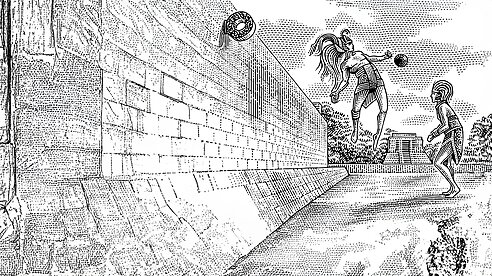The development of team sports was a significant cultural achievement. Sports have transformed the way that people spend their leisure time by being one of the most universally loved forms of entertainment. To many people, team sports fulfill deeper psychological functions, such as providing an additional sense of meaning in their lives.
In this article, Follett writes, “The development of team sports was a significant cultural achievement. Sports have transformed the way that people spend their leisure time by being one of the most universally loved forms of entertainment. To many people, team sports fulfill deeper psychological functions, such as providing an additional sense of meaning in their lives.” In this lesson, you will learn about Chichen Itza—a sprawling ruined city in the Yucatán Peninsula in modern Mexico—and the oldest continuously played ball sport in the world variously called Pok‐A‐Tok, Ulama, or simply, the Ball Game.

